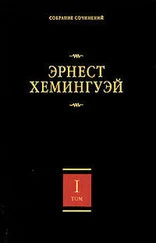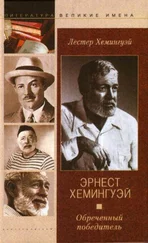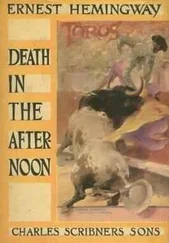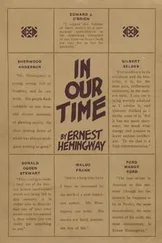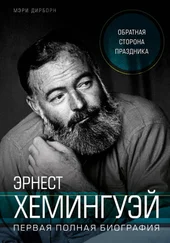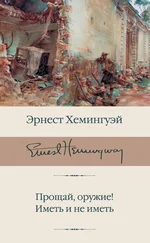No man is an Iland , intire of it selfe; every man is a peece of the Continent , a part of the maine ; if a Clod bee washed away by the Sea, Europe is the lesse, as well as if a Promontorie were, as well as if a Mannor of thy friends or of thine owne were; any mans death diminishes me, because I am involved in Mankinde ; And therefore never send to know for whom the bell tolls; It tolls for thee .
JOHN DONNE
He lay flat on the brown, pine-needled floor of the forest, his chin on his folded arms, and high overhead the wind blew in the tops of the pine trees. The mountainside sloped gently where he lay; but below it was steep and he could see the dark of the oiled road winding through the pass. There was a stream alongside the road and far down the pass he saw a mill beside the stream and the falling water of the dam, white in the summer sunlight.
"Is that the mill?" he asked.
"Yes."
"I do not remember it."
"It was built since you were here. The old mill is farther down; much below the pass."
He spread the photostated military map out on the forest floor and looked at it carefully. The old man looked over his shoulder. He was a short and solid old man in a black peasant's smock and gray iron-stiff trousers and he wore rope-soled shoes. He was breathing heavily from the climb and his hand rested on one of the two heavy packs they had been carrying.
"Then you cannot see the bridge from here."
"No," the old man said. "This is the easy country of the pass where the stream flows gently. Below, where the road turns out of sight in the trees, it drops suddenly and there is a steep gorge-"
"I remember."
"Across this gorge is the bridge."
"And where are their posts?"
"There is a post at the mill that you see there."
The young man, who was studying the country, took his glasses from the pocket of his faded, khaki flannel shirt, wiped the lenses with a handkerchief, screwed the eyepieces around until the boards of the mill showed suddenly clearly and he saw the wooden bench beside the door; the huge pile of sawdust that rose behind the open shed where the circular saw was, and a stretch of the flume that brought the logs down from the mountainside on the other bank of the stream. The stream showed clear and smooth-looking in the glasses and, below the curl of the falling water, the spray from the dam was blowing in the wind.
"There is no sentry."
"There is smoke coming from the millhouse," the old man said. "There are also clothes hanging on a line."
"I see them but I do not see any sentry."
"Perhaps he is in the shade," the old man explained. "It is hot there now. He would be in the shadow at the end we do not see."
"Probably. Where is the next post?"
"Below the bridge. It is at the roadmender's hut at kilometer five from the top of the pass."
"How many men are here?" He pointed at the mill.
"Perhaps four and a corporal."
"And below?"
"More. I will find out."
"And at the bridge?"
"Always two. One at each end."
"We will need a certain number of men," he said. "How many men can you get?"
"I can bring as many men as you wish," the old man said. "There are many men now here in the hills."
"How many?"
"There are more than a hundred. But they are in small bands. How many men will you need?"
"I will let you know when we have studied the bridge."
"Do you wish to study it now?"
"No. Now I wish to go to where we will hide this explosive until it is time. I would like to have it hidden in utmost security at a distance no greater than half an hour from the bridge, if that is possible."
"That is simple," the old man said. "From where we are going, it will all be downhill to the bridge. But now we must climb a little in seriousness to get there. Are you hungry?"
"Yes," the young man said. "But we will eat later. How are you called? I have forgotten." It was a bad sign to him that he had forgotten.
"Anselmo," the old man said. "I am called Anselmo and I come from Barco de Avila. Let me help you with that pack."
The young man, who was tall and thin, with sun-streaked fair hair, and a wind- and sun-burned face, who wore the sun-faded flannel shirt, a pair of peasant's trousers and rope-soled shoes, leaned over, put his arm through one of the leather pack straps and swung the heavy pack up onto his shoulders. He worked his arm through the other strap and settled the weight of the pack against his back. His shirt was still wet from where the pack had rested.
"I have it up now," he said. "How do we go?"
"We climb," Anselmo said.
Bending under the weight of the packs, sweating, they climbed steadily in the pine forest that covered the mountainside. There was no trail that the young man could see, but they were working up and around the face of the mountain and now they crossed a small stream and the old man went steadily on ahead up the edge of the rocky stream bed. The climbing now was steeper and more difficult, until finally the stream seemed to drop down over the edge of a smooth granite ledge that rose above them and the old man waited at the foot of the ledge for the young man to come up to him.
"How are you making it?"
"All right," the young man said. He was sweating heavily and his thigh muscles were twitchy from the steepness of the climb.
"Wait here now for me. I go ahead to warn them. You do not want to be shot at carrying that stuff."
"Not even in a joke," the young man said. "Is it far?"
"It is very close. How do they call thee?"
"Roberto," the young man answered. He had slipped the pack off and lowered it gently down between two boulders by the stream bed.
"Wait here, then, Roberto, and I will return for you."
"Good," the young man said. "But do you plan to go down this way to the bridge?"
"No. When we go to the bridge it will be by another way. Shorter and easier."
"I do not want this material to be stored too far from the bridge."
"You will see. If you are not satisfied, we will take another place."
"We will see," the young man said.
He sat by the packs and watched the old man climb the ledge. It was not hard to climb and from the way he found hand-holds without searching for them the young man could see that he had climbed it many times before. Yet whoever was above had been very careful not to leave any trail.
The young man, whose name was Robert Jordan, was extremely hungry and he was worried. He was often hungry but he was not usually worried because he did not give any importance to what happened to himself and he knew from experience how simple it was to move behind the enemy lines in all this country. It was as simple to move behind them as it was to cross through them, if you had a good guide. It was only giving importance to what happened to you if you were caught that made it difficult; that and deciding whom to trust. You had to trust the people you worked with completely or not at all, and you had to make decisions about the trusting. He was not worried about any of that. But there were other things.
This Anselmo had been a good guide and he could travel wonderfully in the mountains. Robert Jordan could walk well enough himself and he knew from following him since before daylight that the old man could walk him to death. Robert Jordan trusted the man, Anselmo, so far, in everything except judgment. He had not yet had an opportunity to test his judgment, and, anyway, the judgment was his own responsibility. No, he did not worry about Anselmo and the problem of the bridge was no more difficult than many other problems. He knew how to blow any sort of bridge that you could name and he had blown them of all sizes and constructions. There was enough explosive and all equipment in the two packs to blow this bridge properly even if it were twice as big as Anselmo reported it, as he remembered it when he had walked over it on his way to La Granja on a walking trip in 1933, and as Golz had read him the description of it night before last in that upstairs room in the house outside of the Escorial.
Читать дальше
Конец ознакомительного отрывка
Купить книгу



